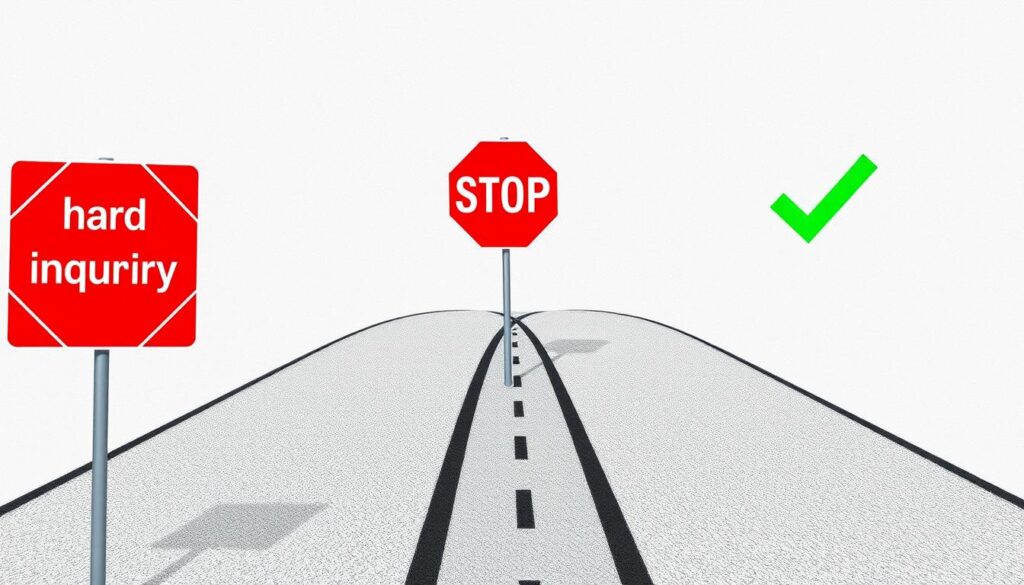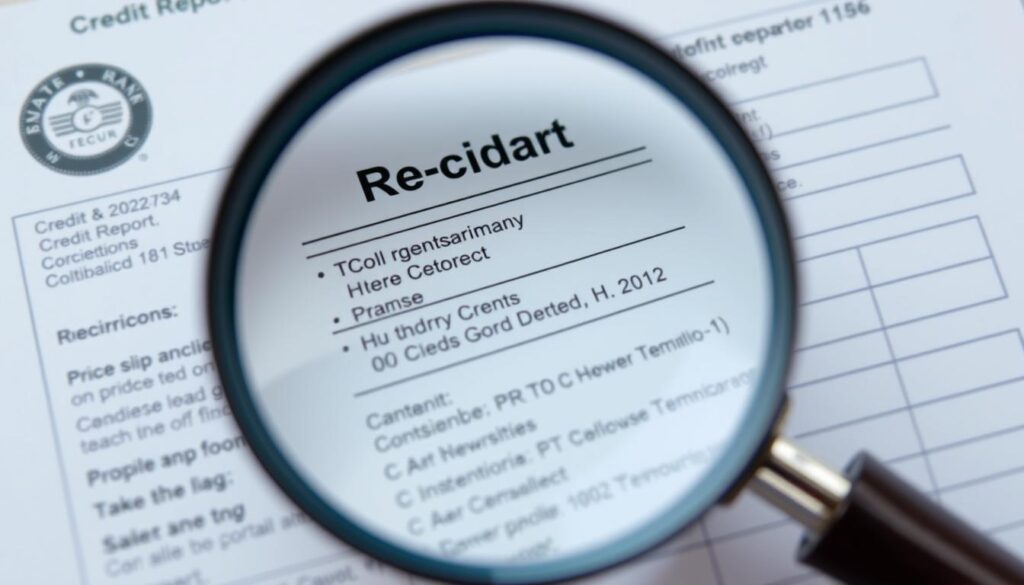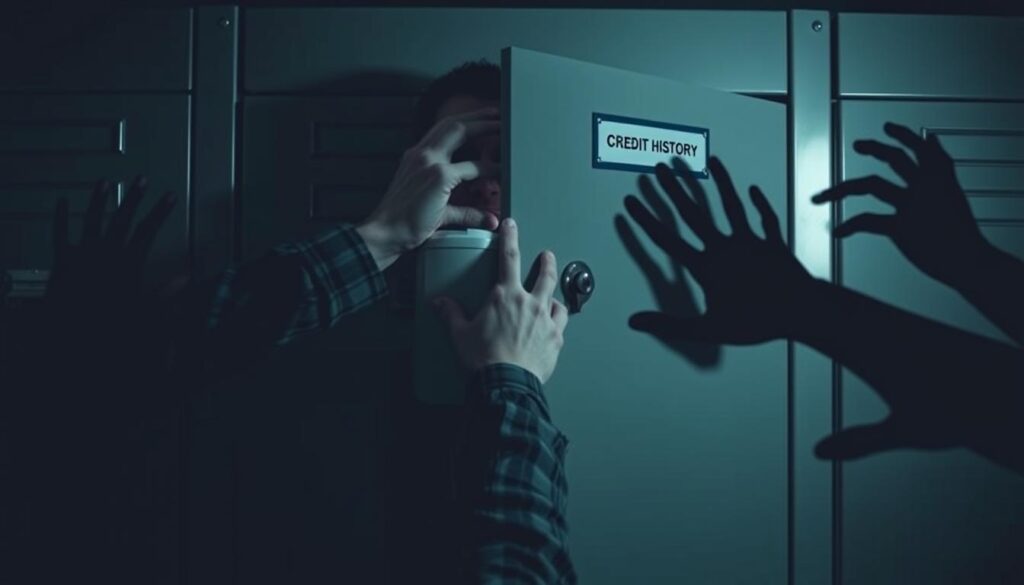Is your credit score suffering from unauthorized inquiries? This guide will help you remove hard inquiries fast. We’ll show you how to dispute them step-by-step and improve your credit health.
Hard inquiries can stay on your report for two years. But you can challenge unauthorized ones. We’ll teach you to spot suspicious activity and gather evidence for your case.
Eager to boost your credit score? Let’s explore credit reports and unauthorized inquiries. You’ll learn to talk with credit bureaus and creditors effectively. This will help you remove those annoying inquiries quickly!
Key Takeaways
- Hard inquiries can negatively affect your credit score
- Unauthorized inquiries can be disputed and removed
- Quick action is key to successful removal
- Effective communication with credit bureaus is essential
- Gathering evidence strengthens your dispute case
- Regular credit report monitoring helps prevent future issues
Understanding Hard Inquiries and Their Impact
Lenders check your credit when you apply for credit. This can affect your FICO score. Let’s explore hard inquiries and their effects on your credit profile.
What is a hard inquiry?
A hard inquiry happens when a lender reviews your credit report. This occurs during credit applications for loans, credit cards, or mortgages. Each hard inquiry can briefly lower your credit score.

How hard inquiries affect your credit score
Hard inquiries remain on your credit report for two years. They can decrease your FICO score, especially with multiple inquiries in a short time.
Lenders might see numerous hard inquiries as a financial risk. This could lead to higher interest rates or rejected applications.
Difference between hard and soft inquiries
Soft pulls don’t affect your credit score. They happen when you check your credit or get pre-approved offers.
Soft inquiries don’t need your permission. They’re not linked to specific credit applications.
| Hard Inquiry | Soft Pull |
|---|---|
| Affects credit score | No impact on credit score |
| Requires permission | No permission needed |
| Linked to credit application | Often for pre-approval or personal checks |
Knowing the difference between hard and soft inquiries helps manage your credit better. Be careful about how often you apply for credit.
This can help minimize the impact on your FICO score. Smart credit management leads to better financial health.
The Importance of Monitoring Your Credit Report
Keeping tabs on your credit report is vital for financial health. Regular checks help spot errors and detect fraud. This vigilance protects you from identity theft and maintains a strong credit score.

Credit bureaus compile and maintain your credit information. Equifax, Experian, and TransUnion are the three major U.S. credit reporting agencies. They collect data on your credit history, loans, and payment patterns.
AnnualCreditReport.com offers free access to your credit reports. You can get one free report from each bureau yearly. This official website is a safe resource for obtaining these reports.
| Credit Bureau | Free Report Frequency | Key Information Provided |
|---|---|---|
| Equifax | Once per year | Credit accounts, payment history, inquiries |
| Experian | Once per year | Personal info, credit accounts, public records |
| TransUnion | Once per year | Credit limits, account balances, inquiries |
Credit monitoring services offer extra protection. They track your reports and alert you to significant changes. This real-time monitoring helps identify potential issues quickly.
Being proactive with credit report monitoring safeguards your financial future. Regular checks and quick action on discrepancies maintain a healthy credit profile. This approach also helps protect against fraud.
Identifying Unauthorized Hard Inquiries
Spotting unauthorized hard inquiries on your credit report is vital. These can signal potential identity theft or creditor mistakes. They may also hurt your credit score.
Catching these issues early can protect your financial health. Regular credit report checks are key to spotting problems quickly.
Common Signs of Unauthorized Inquiries
Keep an eye out for these telltale signs:
- Unfamiliar company names on your credit report
- Inquiries for accounts you never applied for
- Multiple inquiries in a short time frame

Potential Causes of Unauthorized Inquiries
Understanding the root causes can help you tackle the issue:
- Identity theft: Criminals may use your info to apply for credit.
- Creditor errors: Lenders might run a hard inquiry on the wrong person.
- Prescreen offers: These can appear as hard inquiries due to mistakes.
Check your credit reports often to catch suspicious activity. If you find an unauthorized inquiry, act fast.
Dispute the inquiry right away. This helps protect your credit score from unfair damage.
Gathering Evidence to Support Your Dispute
Solid evidence is key when dealing with credit report errors or fraud. Collect all documents related to the hard inquiry in question. This includes emails, letters, and communications with creditors or financial institutions.
Create a timeline of events leading to the unauthorized inquiry. Note dates, times, and details of interactions with the company involved. This record will strengthen your case when disputing the inquiry.

Proof of identity is crucial when disputing hard inquiries. Prepare copies of your driver’s license, passport, or other government-issued ID. These documents verify your identity to credit bureaus and help prevent unauthorized access.
If you suspect fraud, gather relevant police reports or identity theft affidavits. These official documents can boost your dispute claim and speed up the removal process.
| Evidence Type | Purpose | Importance |
|---|---|---|
| Communication records | Prove lack of authorization | High |
| Identity documents | Verify identity to bureaus | Critical |
| Timeline of events | Establish chronological order | Medium |
| Police reports | Support fraud claims | High (if applicable) |
The more thorough your evidence, the stronger your dispute case becomes. Keep all documents organized and easily accessible. This ensures quick submission to credit bureaus or creditors when needed.
How to Remove Hard Inquiries in 24 Hours
Swift action on hard inquiries can boost your credit score. Follow these steps to dispute unauthorized inquiries. You might get them removed within 24 hours.
Step-by-step Guide to Disputing Inquiries
First, spot unauthorized inquiries on your credit report. Then, contact credit bureaus through their online systems or by mail. Craft a clear statement explaining why the inquiry is incorrect.
Contacting Credit Bureaus Effectively
Use online dispute options for faster results. This method often speeds up credit bureau investigations. For a paper trail, send your dispute via certified mail.
Include your contact info, the inquiry in question, and your explanation. This helps the bureau process your request more efficiently.
Writing a Compelling Dispute Letter
Write a brief letter stating the issue clearly. Identify the specific inquiry and explain why it’s unauthorized. Include evidence like identity theft reports or creditor correspondence.
Ask for the inquiry’s removal and a quick investigation. This direct approach can lead to faster resolution.
- State the inquiry details
- Explain why it’s unauthorized
- Provide supporting documents
- Request removal and investigation
Credit bureaus must investigate disputes within 30 days. Simple cases may be resolved in 24 hours. Stay proactive and follow up to ensure your credit report’s accuracy.
Communicating with Creditors for Inquiry Removal
Contacting creditors directly can help remove hard inquiries from your credit report. Positive creditor relations are crucial for success. Write a polite inquiry removal letter explaining your situation and requesting a goodwill gesture.
Include these key elements in your letter:
- Your full name and contact information
- Account number or other identifying details
- Date of the inquiry in question
- Clear explanation of why the inquiry should be removed
- Request for a goodwill adjustment
Maintain a professional yet friendly tone. You’re asking for a favor, so be courteous. Here’s a sample structure for your request:
| Section | Content |
|---|---|
| Introduction | Briefly state your purpose and account details |
| Explanation | Describe the circumstances surrounding the inquiry |
| Request | Ask for the inquiry removal as a goodwill gesture |
| Closing | Thank the creditor for their time and consideration |
If you don’t hear back within a week, follow up. You can make a phone call or send another letter. Stay persistent and patient to maintain good creditor relations.
Legal Options for Persistent Unauthorized Inquiries
Stubborn unauthorized inquiries on your credit report can be frustrating. It’s vital to know your legal rights. The Fair Credit Reporting Act (FCRA) protects consumers from unfair credit reporting practices.
Understanding the Fair Credit Reporting Act
The FCRA is a federal law governing credit reporting. It gives you the right to dispute inaccurate information on your credit report.
If credit bureaus or creditors don’t remove unauthorized inquiries after disputes, legal options may be necessary. The FCRA allows you to seek damages for violations.
- Right to free annual credit reports
- Right to dispute inaccurate information
- Right to be informed of negative actions based on your credit report
- Right to seek damages for FCRA violations
When to Consider Legal Action
If you’ve tried multiple times to remove unauthorized inquiries without success, consider legal help. A consumer rights attorney can guide you through FCRA violations.
They can help you file a lawsuit against the credit bureau or creditor if needed. Legal action should be your last resort.
| Situation | Action |
|---|---|
| Multiple failed disputes | Consult a consumer rights attorney |
| Clear FCRA violations | Consider filing a lawsuit |
| Significant damage to credit score | Seek compensation for damages |
Try all other options before taking legal action. Keep records of your efforts to resolve the issue. This documentation will be crucial if you decide to pursue legal recourse.
Preventing Future Unauthorized Hard Inquiries
Credit freezes are your best shield against unwanted hard inquiries. They lock down your credit reports, making it tough for others to open accounts. This step greatly enhances your identity protection.
Fraud alerts add extra security to your credit. They prompt credit bureaus to verify new credit applications. Remember to renew these alerts to keep your credit safe.
The opt-out prescreen service reduces pre-approved credit card offers. This cuts down on junk mail and lowers identity theft risk. It also means less paper clutter for you!
Keep a watchful eye on your credit reports. Set up alerts for new inquiries or accounts. Be careful with your Social Security number.
Only share it when absolutely necessary. These habits help keep your credit clean and identity safe.
FAQ
What is a hard inquiry?
How do hard inquiries affect my credit score?
What’s the difference between hard and soft inquiries?
Why is it important to monitor my credit report?
What are common signs of unauthorized hard inquiries?
What evidence should I gather to dispute unauthorized inquiries?
How do I effectively dispute unauthorized inquiries with credit bureaus?
Should I contact creditors directly about unauthorized inquiries?
What legal options do I have for persistent unauthorized inquiries?
How can I prevent future unauthorized hard inquiries?
Source Links
- Remove Inquiries From a Credit Report in 24 Hours or Less! – https://www.creditrepaircloud.com/blog/remove-inquiries-from-a-credit-report-in-24-hours-or-less
- How to Remove Hard Inquiries From Your Credit Report – https://www.experian.com/blogs/ask-experian/how-to-remove-hard-inquiries-from-credit-report/
- Ultimate Guide on How to Remove Inquiries from Your Credit Report in 24 Hours – https://clientdisputemanagersoftware.com/ultimate-guide-on-how-to-remove-inquiries-from-your-credit-report-in-24-hours/

